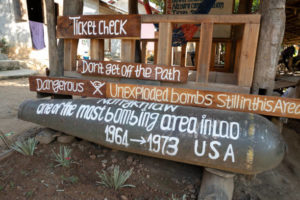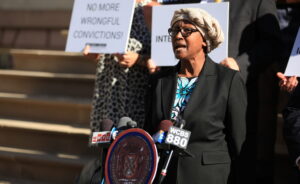
Image Credit: Daily Asian Age by Mahfuz Ul Hasib Chowdhury
New York – Current Affairs Times exclusively interviewed Emin Milli, a world-renowned Azeri journalist and the founder of Meydan Tv. We also interviewed Dr. Gulnoza Said, Europe, and Central Asia Program Coordinator for the Committee to Protect Journalists (CPJ). Both journalists have shared their experiences and unbiased opinions with Current Affairs Times while trying to enlighten our readers about the background of the dispute between Armenia and Azerbaijan.
Dr. Gulnoza Said’s account of the freedom of the press in the region
As the program coordinator of CPJ’s Central Asia and Europe division, Said has years of experience in working with journalists. She shared CPJ’s perspective with the Current Affairs Times, saying that the dispute between Armenia and Azerbaijan is very complex. It highlights a major problem with misinformation and outright false statements. Refusing to name names, Said has observed false reporting by reporters working for major outlets. She urged Current Affairs Times and other news publications to speak directly to well-known experts and with both governments to get unbiased stories first-hand.
CPJ has been monitoring the situation by focusing on press freedom and the safety of journalists. Four journalists were injured last week in the Karabakh region. The internet was shut down in Azerbaijan. Reportedly — only Turkish journalists were being allowed into Azerbaijan while other foreign correspondents had to travel to Nagorno-Karabakh through the Armenian territory.
Said opined that the authorities of Azerbaijan have been suppressing the free press, while the press freedom situation in Armenia is improving. She said the free flow of news by the press in war zones is crucial to gathering objective information. Armenia does not restrict the press — in contrast with the limited independent reporting coming from Azerbaijan.
Emin Milli’s Account of Events
Emin Milli is an Azerbaijani journalist and the founder of Meydan Tv, who lives in exile in Germany. Milli was the Azerbaijani representative at the Friedrich Ebert Foundation and advisor to the Council of Europe. He has studied the Nagorno-Karabakh conflict for many years. The New York Times has covered the details of his life in past issues.
Milli told the Current Affairs Times that there are UN Security Council resolutions demanding the withdrawal of Armenian forces from Nagorno-Karabakh. He believes that Turkey’s involvement in this dispute is exaggerated by the media, especially because the dispute between Armenia and Azerbaijan dates back decades.
Milli says that unlike Armenian claims, Azerbaijan has attempted to negotiate peace for over 30 years. Azerbaijan proposed a peace deal in the ’90s that was supported by superpowers like Russia, the U.S., and France. Under this deal, Armenia would return the seven occupied territories around Nagorno-Karabakh. In return, Azerbaijan would open its trading border for Armenia.
Initially, Armenia agreed to this proposal but the real problem started when the Armenian government changed hands and Nikola Pashiyan, Prime Minister of Armenia, came to power. Pashiyan promised peace but later backed out due to internal political clashes in his country. Pashiyan’s provocative statements and insults to Azerbaijani people reinstated the feud between the two nations.
Milli reported that last year, Armenia’s foreign ministry publicly stated that Armenia wanted to occupy more of Azerbaijan’s territories. This escalated the dispute. Milli claims that the ceasefire was continually violated over the past thirty years — escaping media attention. Both sides blame each other, with people dying on the contact boundaries between the two countries every week.
Russia and Armenia have military agreements bolstering Armenia. Therefore, Milli believes that Azerbaijan would not intentionally violate the ceasefire, making it more likely that Armenia was the violator.
Milli believes that contrary to Armenia’s defense ministry’s claims, Armenia is attacking the city of Ganja from its own territory and not from the occupied territories. Milli claims to have proof from an anonymous, captive Armenian soldier, confirming that an Armenian missile hit Ganja.
While attempting to be unbiased, Milli opined that Armenia also has its own reasons behind its actions. They include targeting Azerbaijan military movements and its prosecution and execution of Armenian refugees.
As a possible resolution, Azerbaijan can open its borders, begin trade with Armenia, and work toward economic advancement. For that to happen, Armenia would have to give up its control of the seven territories around Nagorno-Karabakh.
Milli believes that the international request by the UN for a ceasefire is valid. But, he thinks that these requests will have no teeth until both Azerbaijan and Armenia are committed to peace. To ensure stability, Turkey and the OSCE Nations should talk to both Azerbaijan and Armenia about the post-ceasefire commitments.
According to Milli, the balance of power in Eastern Europe has changed in the past thirty years. Although Azerbaijan is not a democracy, the nation has enjoyed economic advancement — a fact to which Armenia must reconcile.
Azerbaijan’s population also consists of ethnic Armenians, not just those of Azeri descent. The blame game only gives birth to grounds for military operations and it is what politically volatile countries in Eastern Europe have always historically done.
Milli also blames youth groups like the Young Turks, a group which spreads propaganda and lies. These groups give a false impression of being progressive. They are not officially backed by any government —- a real problem.
Milli believes that territorial conquests can cost millions of lives. It’s important to focus on humanitarian dimensions and the war is nothing but a genocide that needs to stop. The question becomes, how to do it?
Image Credit: Daily Asian Age by Mahfuz Ul Hasib Chowdhury
Sources:
- The Current Affairs Times exclusively interviewed Emin Milli and Gulnoza Said for the contents of this article.
Afia is a lawyer, journalist, an avid traveler, an avid reader, a foodie, and an amateur singer. She enjoys instrumental music with her glass of wine ?






